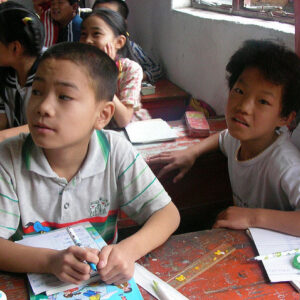Nearly 80 million additional children are now benefiting from government-led school meal programmes globally, marking a 20 percent increase since 2020 and bringing the total to at least 466 million, according to the latest edition of The State of School Feeding Worldwide, a biennial report released by the United Nations World Food Programme (WFP). The report shows that progress is strongest in low-income countries, where the number of children receiving school meals has surged by 60 percent in just two years. Africa leads this expansion, with an extra 20 million children now fed through national programmes, particularly in Kenya, Madagascar, Ethiopia, and Rwanda.
The report highlights that this growth is being driven by national governments, who recognize that school meal programmes not only support children’s health and education, but also benefit smallholder farmers, local employment, and sustainable diets. “School meals are so much more than just a plate of nutritious food,” said WFP Executive Director Cindy McCain. “For vulnerable children, they are a pathway out of poverty and into learning and opportunity. Governments are showing real leadership by prioritizing school meals, which are among the smartest investments for long-term health, education, and economic prosperity.”
Global funding for school meals has more than doubled in four years, rising from US$43 billion in 2020 to US$84 billion in 2024, with nearly all of this financing now sourced from national budgets. This shift underscores the growing recognition of school meals as a key public policy rather than a foreign aid programme. However, funding gaps remain in low-income countries, where the need is greatest.
Countries that are members of the School Meals Coalition—led by over 100 governments and supported by more than 140 partners—have seen the fastest expansion. Two-thirds of newly reached children are in Coalition member countries. Since 2020, the number of countries with national school meal policies has nearly doubled, increasing from 56 to 107. “The surge in nationally funded school meal programmes is a powerful sign of what is possible, even in challenging times,” said Carmen Burbano, WFP Director of School Meals and Social Protection.
Emerging evidence in the report shows that school meals do more than improve enrollment and retention—they also enhance learning outcomes, boosting cognitive skills, maths, and literacy. In some cases, school meals have been found to be a more cost-effective way to improve education quality than traditional interventions such as teacher training or technology inputs.
Beyond education, school meal programmes provide a broad range of social and economic benefits. They act as the world’s largest social safety net, supporting children through crises such as pandemics, conflicts, and climate shocks. For every US$1 invested, school meals generate between $7 and $35 in economic benefits. Programmes also create jobs, with 7.4 million cooks employed worldwide, alongside additional roles in farming, logistics, and supply chains. Home-grown school feeding initiatives promote healthier, environmentally friendly diets while strengthening local food systems and economies. Girls and women benefit disproportionately, with improved education, health outcomes, and economic empowerment through employment in school meal delivery and related activities.
WFP continues to play a transformative role in expanding school meal programmes, supporting governments in reaching 139 million children directly and delivering meals to 21 million. The agency also helps countries transition to national ownership of school feeding systems, as seen in Armenia, Benin, and Iraq, and provides frontline support in emergency contexts like Haiti. These efforts demonstrate WFP’s long-term commitment to building resilient, nationally led programmes that improve children’s well-being and strengthen communities worldwide.







